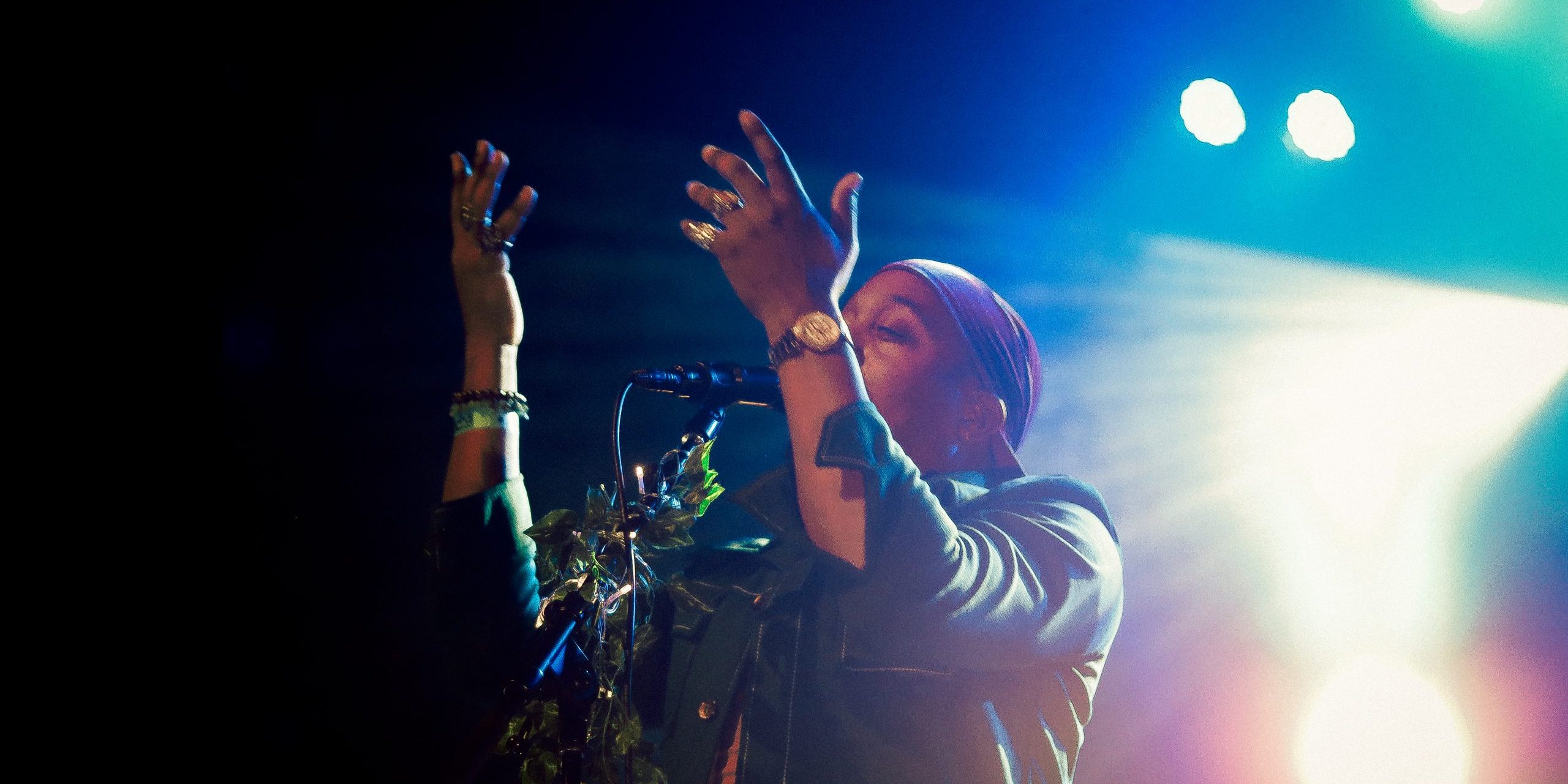Photos by Luna Seng–Lay
I’ve always loved the rain. Growing up on the Northern California coast, in the small beach town of Half Moon Bay, there were very few days during the year when the sun shone through without the distraction of the clouds and fog. For my parents, Southern California natives who spent their childhood in the sunshine, they associate the rain, the fog, and the clouds with melancholy sadness, change, and discomfort. But to me, the fog is a big blanket hug; the clouds, an inspiration for imagination; the rain, a reminder that I can feel. Rain reminds me of home: who I am, who I was, and who I’m becoming. In a city that supposedly never rains, it’s hard to tell the difference in the days. It’s hard to feel the difference in the days. It’s easy to get caught up in the sunshine of it all. However, the rain never fails to bring me back to earth, and help me realize it’s okay to soak in the moment, feel the grass and mud between my toes, and breathe. It seems only fitting that the first rain of the year would fall on the same day as my first concert covered with UCLA Radio.
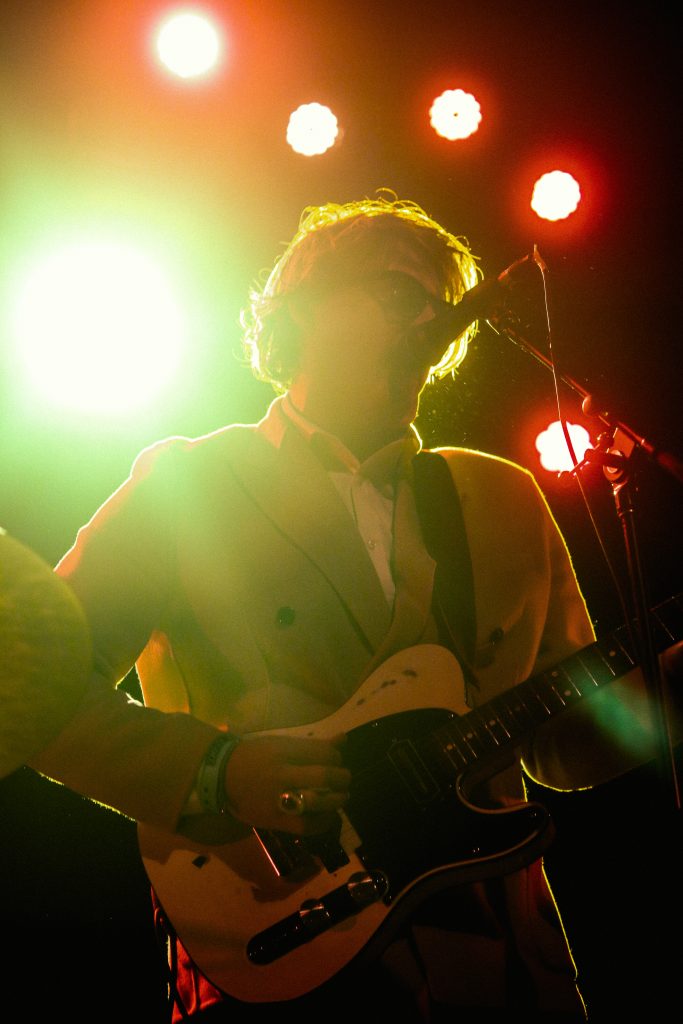
A crowd of mainly people in their 30s and 40s fluttering from their nine to fives, under layers of sweaters and boots, filled the checkered floors of The Fonda on 11/15/23. The evening began with a poetry reading by “Alex,” a friend of the opening band Busman’s Holiday. Fronted by Indiana-raised and based brothers Lewis (guitar/keys/vox) and Addison Rogers (drums/vox), catchy melodies and charming tongue-in-cheek vocal harmonies by the brother duo soared over an unwavering groove as they sang of first love and a general optimism with a zest for life.
Accompanied by bass, soprano sax, and tenor/electric sax, it was obvious even in hearing this group for the first time that the family values and genuine care so heavily instilled in the group. For a rather formal venue, it was comforting how intimate their performance felt, a ubiquitous theme throughout the night. Although the group didn’t officially form until 2008, the Rogers brothers have been playing together since they were young, for a long time in a D.I.Y. acoustic setting with just a guitar and a suitcase drum kit. As a result of this raw and exposed nature in their roots, their more professional and produced sound is trained to be and so evidently tight and locked in. As noted in their Spotify bio, “Busman’s Holiday explores songwriting and making people feel good.”
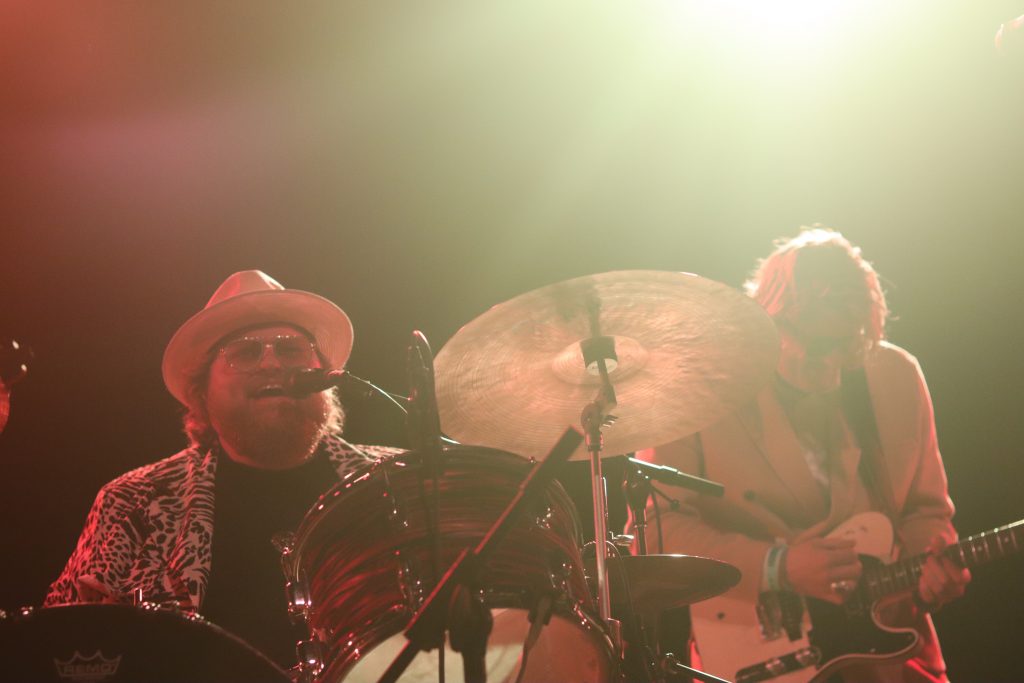
Shortly following the close of the opening set, warm and booming soulful voices graced the echoing chamber of the theater against a green-drawn curtain backdrop. The title track of Durand Jones’ most recent release, “Wait Til I Get Over” rang almost like a bird’s call or dinner bell, the sounds summoned and demanded the attention of all. Known best for his work with the five-piece soul group Durand Jones & the Indications, Jones wanted his debut solo album to be an evocative and real portrait of growing up along the Mississippi River in Hillaryville, Louisiana,
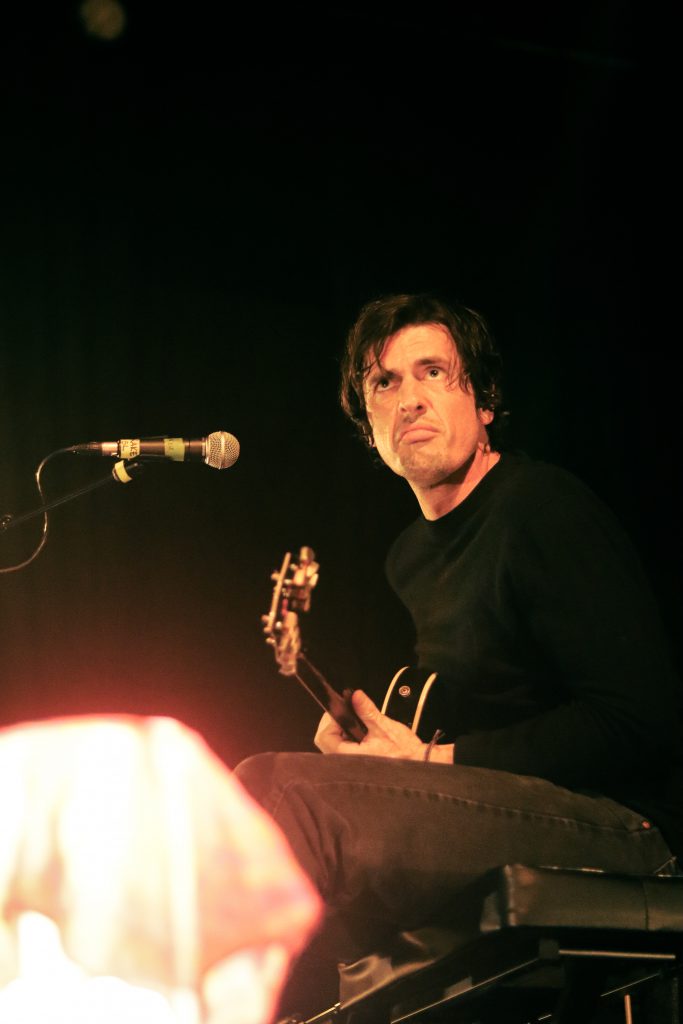
and the untold narratives of his ancestors and those who came before in the rural South. His songs, each a story straight from the heart and soul, and tied to memories of sticky hot summers, sweet magnolia, sugarcane, and must. Jones attended Indiana University in Bloomington and noted that it wasn’t until he left home for the first time that he realized the beauty and art of it all: the music, culture, and people. After years of creating songs of love and lust for life along with performing them for the masses, he wanted to create something for himself. He wanted to share his story, but for the audience to understand the full picture, he realized his story started long before him.
Recounting his childhood of growing up in the church, singing in the choir, and learning how to play the saxophone, Durand’s album paints a greater narrative of shared life experiences and the impact of generational struggles. In this twelve-track EP, “Wait Til I Get Over” Jones sings the song of the eight formerly enslaved men who founded his town following the Civil War. He sings the song of members of his consistency: his grandmother, church, his partner, and his fellow church members. Finally, he sings the song of self and finds himself through this project. With styles ranging from spoken word to ragged and rough blues, gospel, and soul, Jones explores themes of faith, queerness, race, and drive in the masterpiece of an album, bolstering an even more powerful performance on-stage.
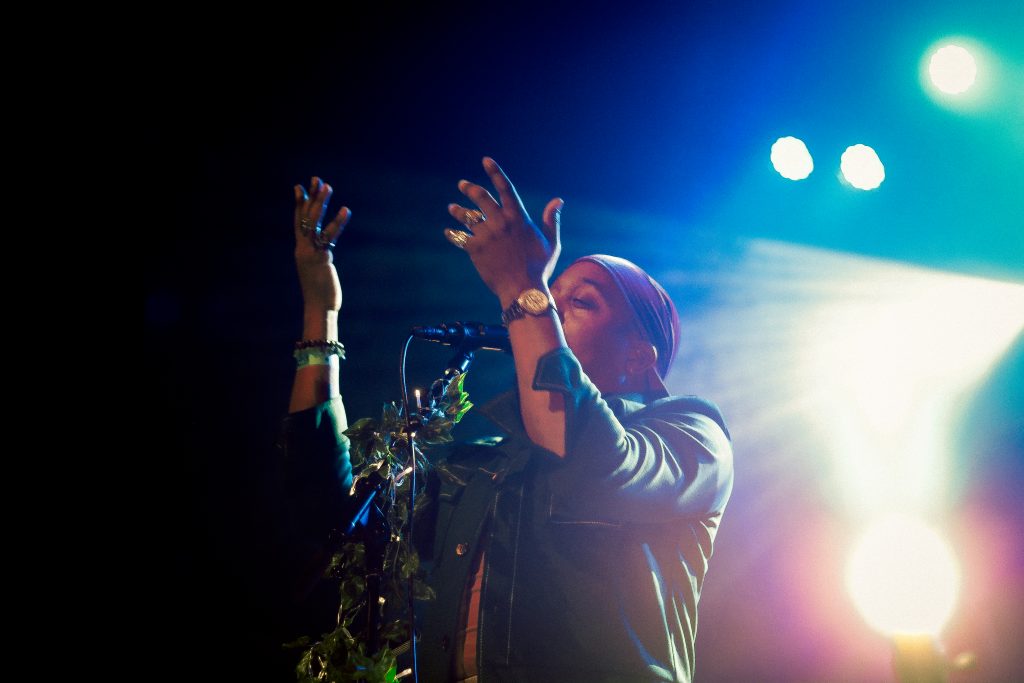
From the moment Jones stepped foot on stage, love was in the air. He had such a presence and appreciation for the music, the stage, the people. Before he even started singing, he thanked each and every band member in this rather large ensemble of six; a pianist, percussionist, drummer, bassist, and two guitarists. Then, he opened a small jewelry box and put on his necklaces and rings. He established exactly who he was in such a raw and intentional way before he even sang a single note. This same energy and general demeanor stuck with him throughout the performance, and through an intricate setup of lights, colors, and interconnecting sounds, he managed to reach every single member of the audience as if it were a one-on-one conversation. He shared words of encouragement and spoke on social justice issues prevalent in our world right now. He emphasized the privilege of having a platform and his intention to use it for good, using his voice to speak out about what he believes in and the things most important to him. He urged the audience to not let the evils of the world take their humanity away from them and to not give up on their dreams. He reached out to those who were hurting, aching, and struggling, letting them know he was there and saw them. He shared his confusion with and criticism of the government and its allocation of money and resources. Each intentional word, note, movement, and moment flowed perfectly throughout the venue. Ethereal and enthralling vocals and saxophone solos soared over an unwavering groove between the rhythm section, creating a sound far too sweet and tender for human taste. Everything about the performance was raw and real. Beams of sweat and tears rolled down Jones’ face as he sang, noises of enjoyment and encouragement were exclaimed by the band members; Jones even laid down during a piano solo out of complete and utter happiness.
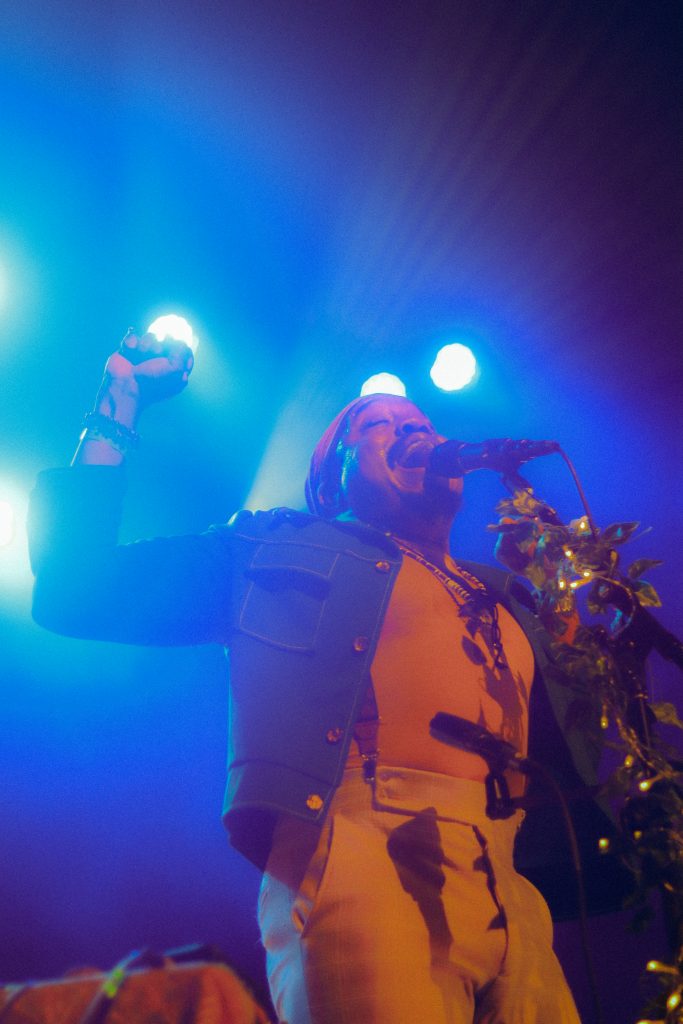
The performance felt like a rebirth, an acknowledgment of all that’s happened and all that’s yet to come. By discussing the injustices that plague our world, Jones posed an optimistic and empowering perspective, urging the crowd to take initiative and seize the agency in themselves to take action and be their own agent of change. Through these songs that basked in a moment and reflection, he urged the audience to soak it all in, feel everything in its entirety, and be present! Durand Jones closed his set at the Fonda with a call-and-response format of the song “Someday We’ll All Be Free” that got one’s entire body moving and grooving. It’s quite fitting this performance coincided with the first rain of the year, because like the raindrops that adorned my hair and nose outside, the magnetic pull of Durand Jones’ vulnerability left drops of hope and morning dew, intricate memories that would keep me thinking about this performance for days.

